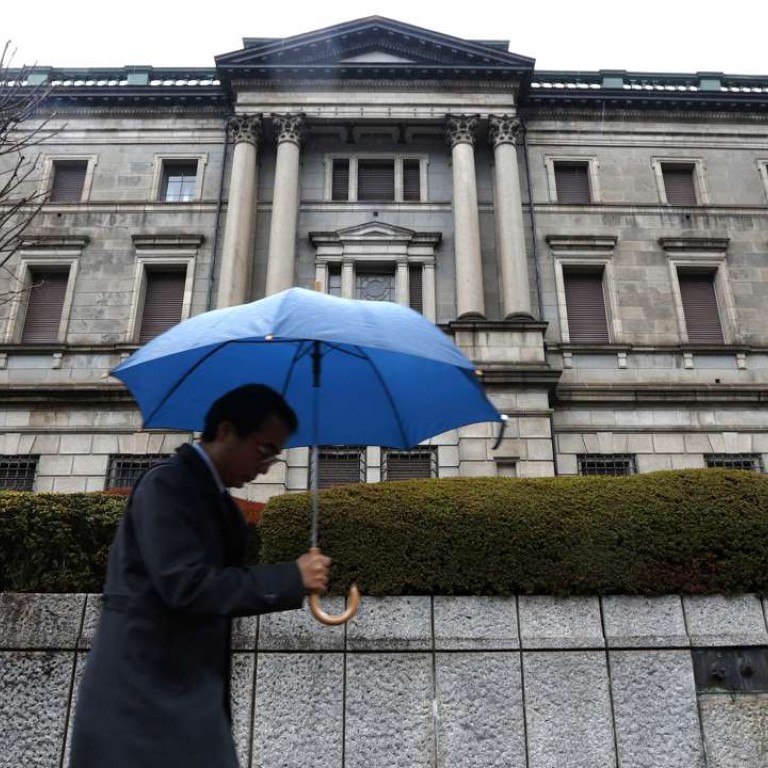
Bank of Japan policy shift signals bond purchase scheme close to limit, say analysts
Economists foresee more easing in near future, along with wage target policy
The Bank of Japan’s overhaul of its monetary policy on Wednesday suggested the current government bond purchase scheme is close to its limit, and the central bank may keep interest rates lower for longer, economists said.
On Wednesday morning, the BoJ unexpectedly decided by a 7-2 majority to switch to what it called “Quantitative and Qualitative Monetary Easing (QQE) with yield curve control” from “QQE with a negative interest rate”.
It said it is aiming for a 10-year Japanese government bond yield of around 0 per cent, while keeping the policy rate unchanged at minus 0.1 per cent, suggesting a shift of emphasis to yield curve from monetary base.
“The BoJ appears to be more worried about the limit of the tools and the negative impact of the negative interest rate policy, although it will never accept this, at least officially,” Masaaki Kanno, an analyst with JP Morgan wrote in a note on Wednesday following the BoJ decision.
“Although the BoJ maintains its commitment to achieve 2 per cent inflation at the earliest possible time, today’s decision suggested that the BoJ is not so serious. [Otherwise] the BoJ could have eased today, including the rate cut. ”
But he predicted a further cut in rates in the near future.
“Today’s statement indicated that, if needed, the BoJ will cut the policy rate as well as the long-term rate target and expand the asset classes, while an increase in the pace of the monetary growth is possible, depending on the situation,” Kanno wrote.
Yuichi Kodama of Meiji Yasuda Life Insurance, told Bloomberg the move basically meant the BoJ had shifted its main policy target to the yield curve from the monetary base, and “if it takes additional easing in the future, it will probably deepen the negative rate.”
“Today’s decision means the BoJ has admitted that the current policy scheme of government bond purchases is close to its limit,” he said.
Analysts with Jefferies, on the other hand, predicted a policy focusing on wages and income.
“Kozo Yamamoto, an Abe adviser who recently joined the cabinet, has suggested that the government and the ministries should have a wage target policy.
“In addition, Abe intends to raise the minimum wage from JPY798 to JPY1,000 by 2020. There is now pressure to enforce a much stricter compliance of companies in forcing them to adhere to a ‘wages policy’, possibly up to 3 per cent,” they wrote in a note issued on Wednesday afternoon. This was also the conclusion from a recent International Monetary Fund report, they added.

